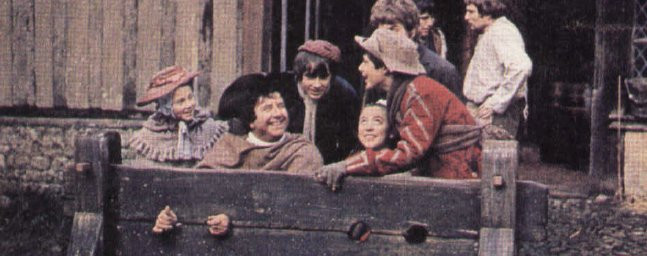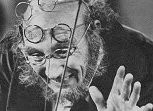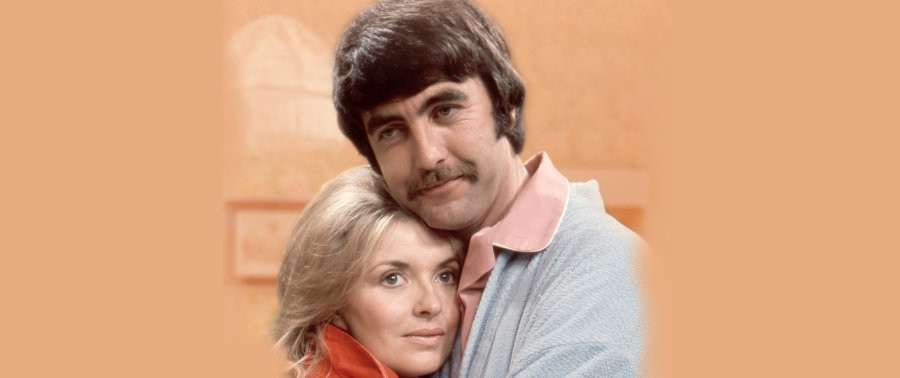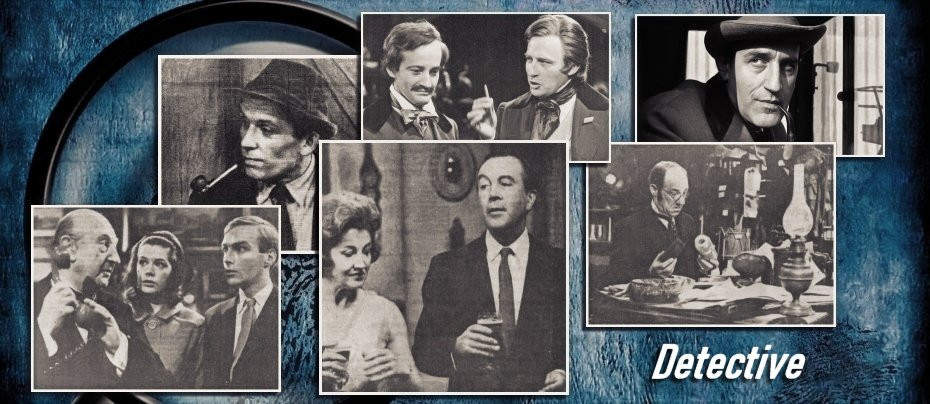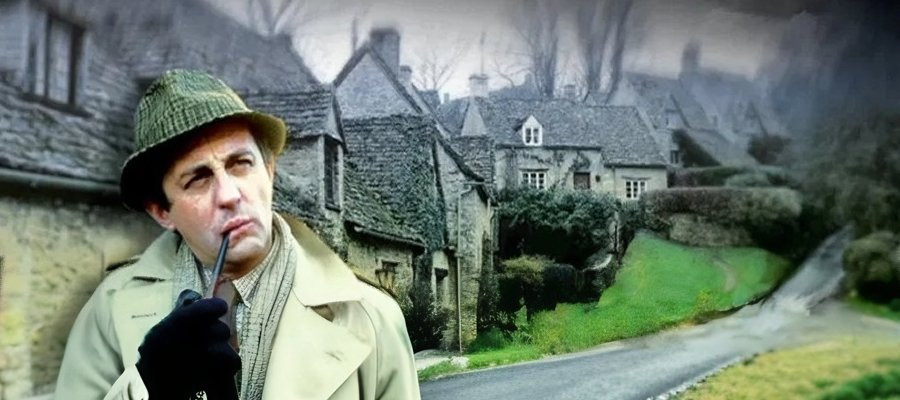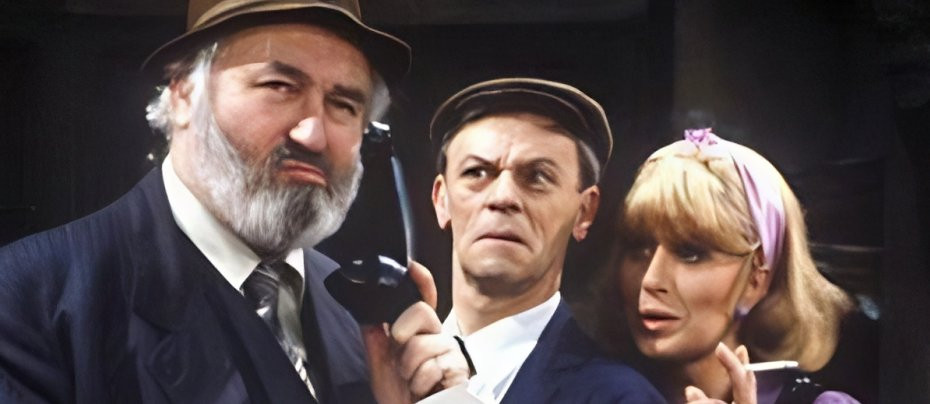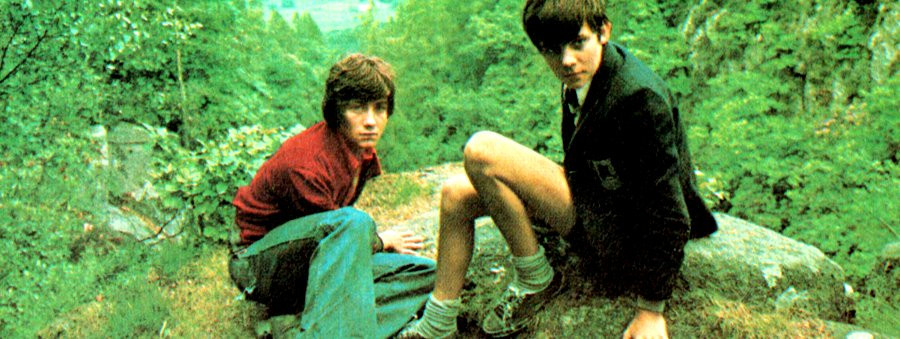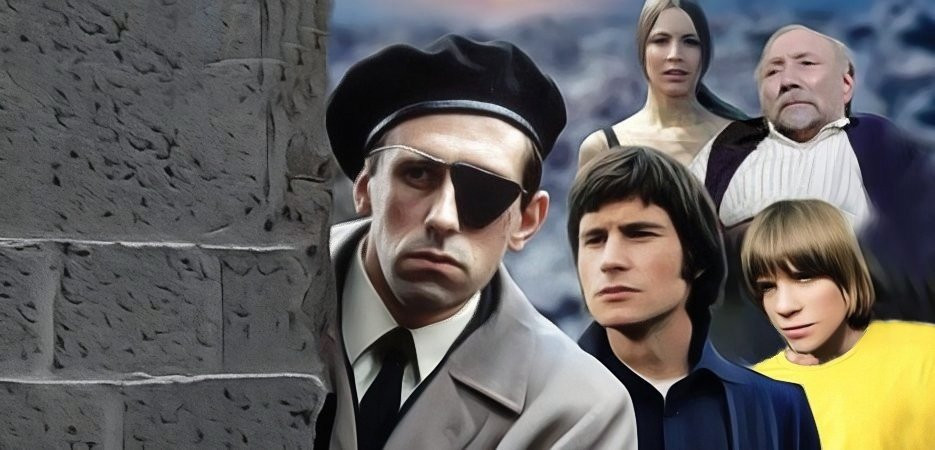
The Intruder
1972 - United KingdomThe Intruder begins by introducing us to sixteen-year-old Arnold Haithwaite (James Bate), as he navigates the complexities of adolescence compounded by his lack of true identity, against the backdrop of Skirlston, a desolate coastal town in northern England. Arnold's job as a sand pilot, guiding tourists across a dangerous expanse of intermittently dry land to a small offshore island and ensuring they get back safely before the tide comes in, sets the stage for a story rich in tension and intrigue.
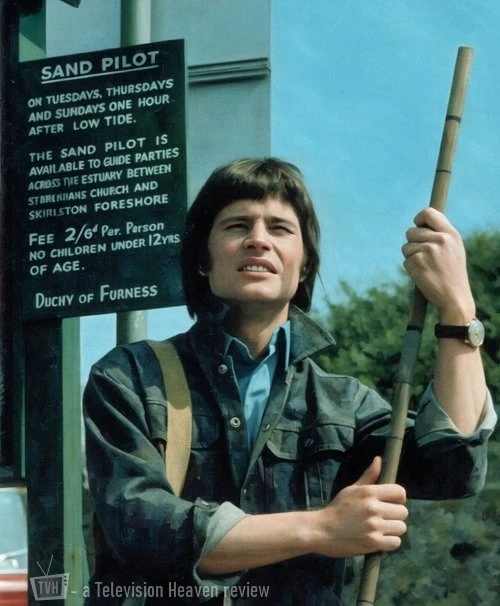
Arnold is depicted as a somewhat naïve solitary figure, living with Ernest Haithwaite (Jack Woolgar), a man he regards as his father despite the lack of a blood relationship. This dynamic is upended with the arrival of the mysterious 'intruder,' a dishevelled middle-aged man wearing an old belted raincoat, a black beret, and an eyepatch, who seems eager to antagonise Arnold right from the start by immediately claiming to be the real Arnold Braithwaite! Instantly creating friction and escalating the drama with his audacious antics and deceitful charm, the intruder's machinations extend into Ernest's household, where he insinuates himself under the guise of a long-lost relative named Sonny.
The plot thickens as it becomes clear that Sonny harbours ambitions to transform the area into a bustling tourist destination, using Ernest's home as his operational base. His strategy hinges on undermining Arnold's standing in the household and driving him away, leveraging the fact that Arnold has no legitimate claim to Ernest’s estate. The stakes are further heightened as it appears that Sonny is slowly poisoning Ernest.
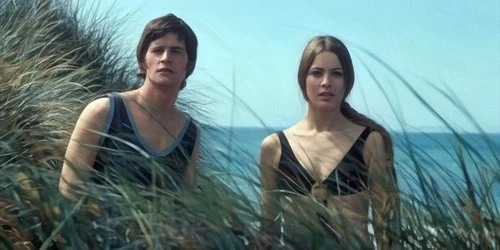
Fifteen-year-old Jane (Sheila Ruskin) and her thirteen-year-old brother Peter (Simon Turner), despite coming from a ‘better off’ background, emerge as Arnold’s unexpected allies. Jane, a spoilt young lady who holidays in Skirlston village and is staying at the manor house, has become bored with the company of her younger brother and is happy to find a new sense of purpose in supporting Arnold against the manipulative Sonny.
The Intruder was adapted for television by Mervyn Haisman and Peter Plummer from John Rowe Townsend’s 1969 novel. Townsend, (the 'Rowe' was added to avoid confusion with another writer) born in 1922, had previously worked on ciphers and codes during the Second World War, before taking up a career in journalism. By 1969 he was a towering presence in the academic realm of children's literature and the distinguished author of Gumble's Yard (1961), a pivotal work that profoundly shaped the evolution of contemporary children's books. This, his inaugural and arguably most renowned work, emerged during his tenure at the Manchester Guardian. It was inspired by his profound realisation of the chasm between the idyllic lives of young characters in the literature he critiqued, and the stark, often brutal realities endured by the children he encountered while investigating a feature on the NSPCC. Peter Plummer had previously directed another of Granada Television’s successful teenage series, The Owl Service. Mervyn Haisman, along with his writing partner Henry Soskin (under the pseudonym Henry Lincoln) had written a number of memorable Doctor Who adventures during the Patrick Troughton era.
The Intruder was shortlisted for the American Carnegie Medal and won the Boston Globe-Horn Book award and the Edgar award for juvenile mystery. Bringing the story to the small screen in 8 twenty-five-minute episodes required Peter Plummer, who was also the series producer, to ensure he got the casting just right.
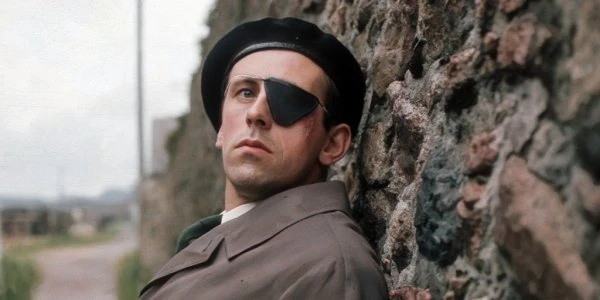
Milton Johns, already a prolific character actor, played the part of Sonny and revealed to the readers of Look-In, the junior TV Times magazine, that he found the role of Sonny taking over his own personality. "I would get up in the morning and put [the character's] clothes on. After a week I couldn't shake them off. I had to deliberately force myself to change into my own clothes. I was certainly glad to put Sonny in the wardrobe and close the door!" Johns went on to appear in some of the best remembered series on British television, including - Doctor Who, Shoestring, Yes, Minister, Butterflies, Coronation Street and Casualty as well as Remington Steele and The X-Files in the USA and as an Imperial Officer in the film Star Wars: Episode V - The Empire Strikes Back.
Twenty-three-year-old Sheila Ruskin found that she too was influenced by the clothes she wore for the part. "Jane is six years younger than myself - I had to wear a miniskirt. I haven't worn one for ages and I'd forgotten how chilly they are - especially on the Cumberland coast." Ruskin went on to play roles in The Pallisers, The Sweeney, Crown Court, I, Claudius, Mackenzie, Grange Hill, A Touch of Frost, EastEnders and Doctors.
For James Bate, this was his first proper television role. He had started his career as a musician and had a group of his own (The Strangers) by the time he was seventeen. "Times were tough," he told Look-In, "and there was a lot of competition from other groups." He earned his way by taking a variety of jobs from van driver to builder's labourer before heading for London where he joined an amateur dramatic group, the Chelsea Players, before going on to drama school in Hornsey. Switching from being a musician to an actor was a gradual change and not something that happened overnight, but it eventually led him to playing Hamlet and Romeo in a two-month tour of the USA. Upon return, he joined the Tyneside Theatre Company. After The Intruder he went on to various television shows which included The Spoils of War, The Gentle Touch and Auf Wiedersehen, Pet. He passed away in 1992 aged 47 years.
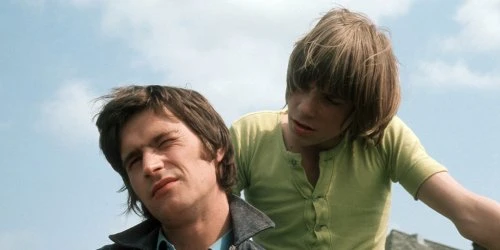
Simon Turner (aka Simon Fisher Turner) had made his television debut in a 1968 episode of Detective, an anthology series of crime dramas that was introduced by Rupert Davies in the guise of Chief Inspector Maigret. He came to his role in The Intruder after impressing in The Silver Sword and Tom Brown's Schooldays (both in 1971) and later went on to appear in a number of productions which included Kim & Co., Van der Valk and Lillie. In 1973, Turner released his eponymous first album and was later a member of The Gadget and later still he joined The The. He also recorded several film soundtracks and has since carved out a successful career as a songwriter and a producer.
Jack Woolgar was another of those reliable character actors that Britain has turned out with great regularity and equally great success. He began acting towards the end of the Second World War and turned professional soon after. Distinctive because of his bubbling guttural voice (the result of life-long chest problems), Woolgar had prominent roles in a number of productions which included Stand Up, Nigel Barton - an autobiographical play by Dennis Potter, and became a regular face on our screens when he played Sam Carney in over forty episodes of Crossroads – just a sample of over a hundred screen credits. Woolgar passed away in 1978, aged 64.
Location scenes were shot at Pestbury near Manchester (for the exterior scenes of the manor house – in reality the eighteenth century Legh Hall), on the streets of Manchester itself, Anglesey, and Ravenglass in Cumberland, which Bate enjoyed so much that he described being there as “one long holiday”. Some of the language used in the original novel was toned down for the adaptation which may well have prompted John Rowe Townsend to comment that the serial was, in his opinion, “visually beautiful, excellently cast, intelligently directed – but the script could have been better.”
Eerie, disquieting and perplexing, at the heart of The Intruder is a story of loss of identity and a journey of self-discovery set against the bleak background of a dying community with a limited future. A teenage drama it may be, but it is compelling viewing no matter what your age.
Seen this show? How do you rate it?
Seen this show? How do you rate it?
Published on June 27th, 2024. Written by Laurence Marcus for Television Heaven.


